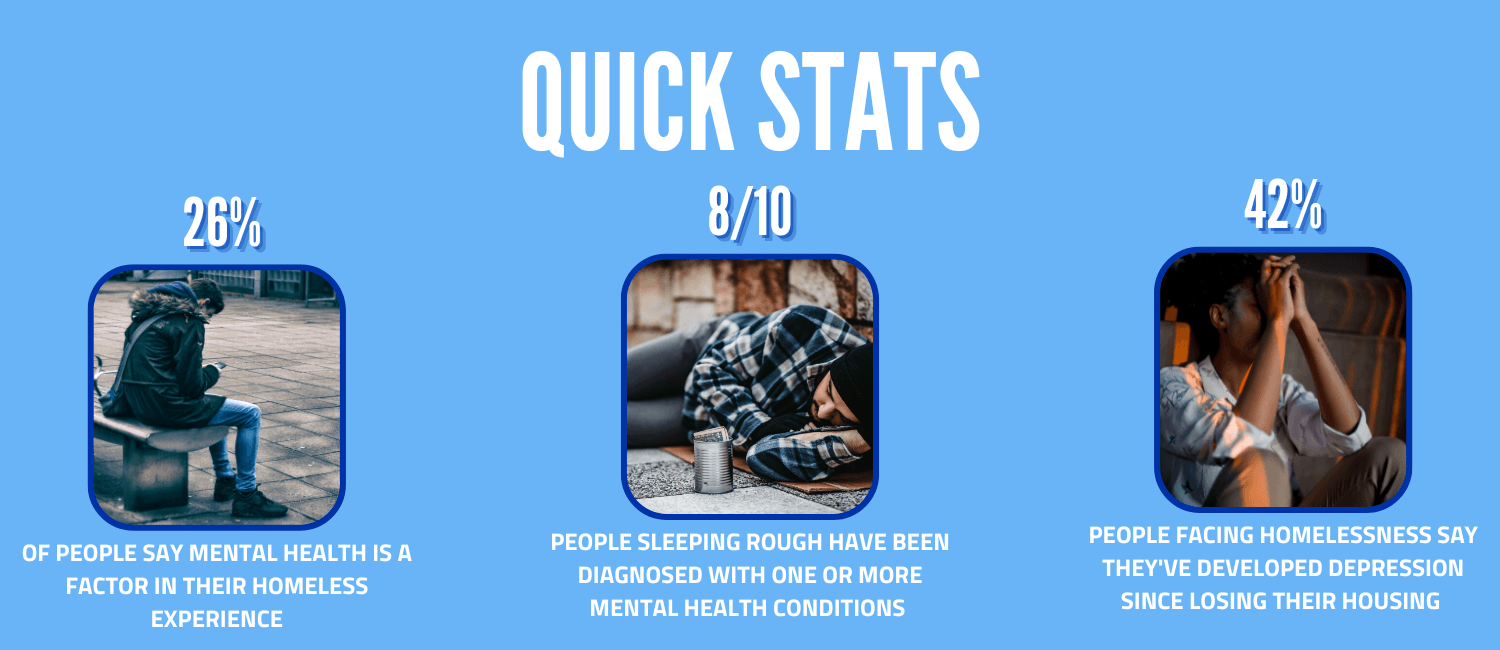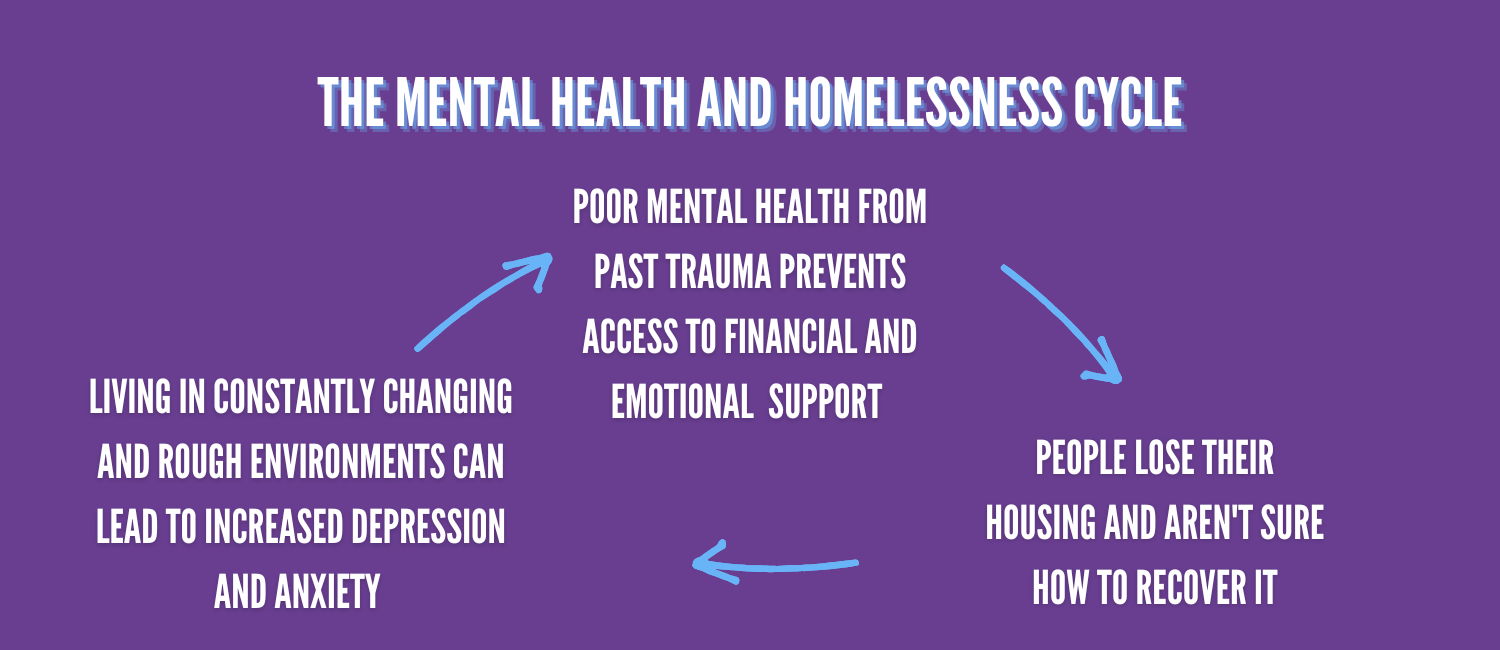
Most of us will experience some form of trauma in our lifetimes. This can range from the passing of a loved one to working/studying in high-stress environments. But for some, trauma can be much more impactful. This can affect a person’s mental health significantly and put them at greater risk of homelessness. This is often the case for our clients, who experience multiple types of trauma throughout their life.

As you can see above, mental health can play a huge role in a person’s homeless experience. While many people are right to assume that sleeping rough can cause anxiety and depression, we often forget about those with trauma from their past experiences before homelessness.
If you would like help someone facing trauma and homelessness, please Click Here
This trauma can lead to homelessness as people lose the financial and emotional support systems that keep them safe. This can also make it difficult to seek help as those with complex needs are often turned away. This is why we focus on people with traumatic experiences in our work as everyone deserves support during homelessness, no matter how much effort or time it takes.
In addition to past trauma, people are likely to experience new trauma when sleeping rough which can make their existing mental health issues worsen. For example, many of our clients report being attacked on the streets and harassed by others. This new trauma makes it increasingly difficult to seek help and so, a cycle of poor mental health occurs.
We asked our psychotherapist Daniel What barriers have you seen to people sleeping rough accessing mental health support?
This was his response:
“The chaos and instability of street living can make it very challenging to stick with a structured plan like weekly sessions at a particular time and venue. In a role such as mine it can be helpful to always bear this in mind and be as flexible, intuitive and accommodating as possible in view of these factors.
It’s about building relationship from a client-centred perspective, making space for engaging in conversation in ways that seek to understand where someone is coming from and their own particular perspective and values. Cultivating a negotiable, respectful and accessible space can help overcome even very significant and overwhelming barriers.”

How can we break this cycle?
Helping people sleeping rough with their mental health can be complex because so many factors can feed into their trauma and everyone’s stories are different. At The Connection, we have decades of experience helping people with their mental health and provide many services to our clients, including 1:1 counselling with a mental health specialist to be there when we’re needed most.
More than this, all our staff work to build relationships with our clients and rebuild their trust in others. These small friendly chats and smiling faces can be a great first step in helping people heal.
If you would like to support this work, please consider fundraising for us or volunteering, either individually or with your organisation.
You can also donate below:

